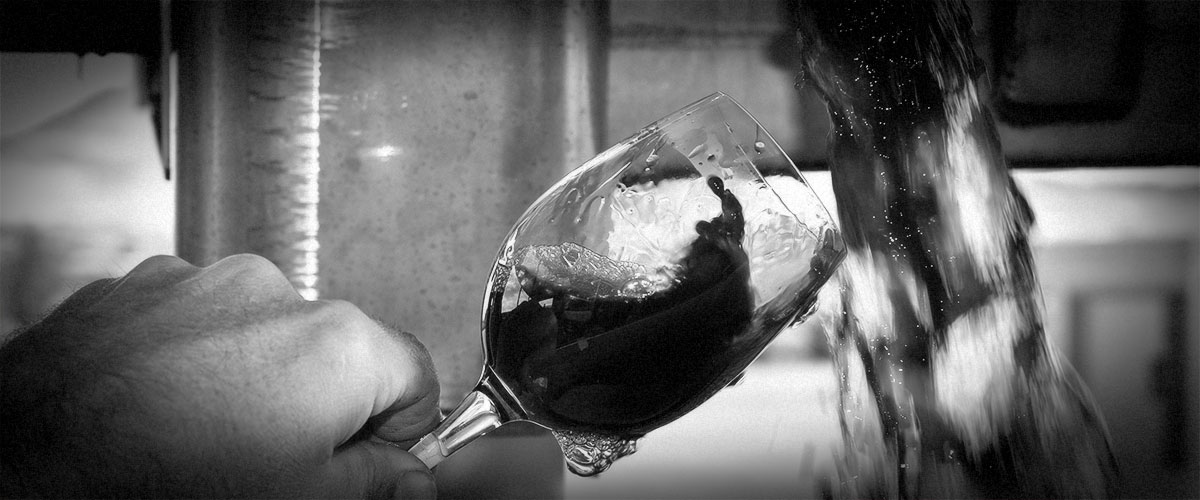by Chris Russell, Contributor
Sulfites. You’ve probably heard the term used in regards to wine … but what are they? Do 2Hawk wines contain them? Why are there sulfites in wine, anyway? A natural byproduct of fermentation, sulfites are present in all wines to a degree. More than just a byproduct, they’re a powerful, natural preservative and essential to the winemaking process. Adding sulfites to wine helps ward off unwanted microbes and keeps oxidation from creeping in. There’s more to the story, though, so let’s dive deeper into the role sulfites play in wine.
What Are Sulfites?
In chemistry, sulfites are chemical compounds that contain a sulfite ion—a sulfur atom surrounded by three oxygen atoms. In wine, however, when we talk about sulfites, we’re generally referring to sulfur dioxide (SO2) and the forms it takes in wine. There’s “free” SO2, which exists as both molecular SO2—a gas in solution—and bisulfite ions. There’s also “bound” SO2, which is SO2 that is bound to different molecules in wine, such as sugars, proteins, anthocyanins, and acetaldehyde. Together, free and bound forms of SO2 make up the sulfite content of wine.
Why Are There Sulfites in Wine?
All wines contain some sulfites, unless they’re removed. Yeast naturally produce sulfites during fermentation as a defense mechanism, taking advantage of the antimicrobial properties to deter competition from other microbes. We supplement these natural sulfites to help protect our wines from undesirable microbial growth and premature oxidation, which would potentially negatively impact the character and flavor of the wines. Without some added sulfites, our wines would be more difficult to store and ship, and they would have a significantly shorter shelf life.
Not all wines have the same amount of sulfites, however. Red wines generally contain more sulfites than whites because white wines tend to have higher acidity, and sweeter wines usually have more sulfites than drier wines. Each wine is unique, so we add the minimum amount of sulfites necessary to ensure the wine is protected. Too much sulfite can impart a metallic taste to the wine or give the wine a distinct aroma similar to a struck match.
Sulfite Myths
One persistent myth about sulfites in wine is they cause headaches or hangovers. This isn’t necessarily true. Sulfites can worsen asthma symptoms in a tiny percentage of people, but this is generally a problem associated with foods and drinks much higher in sulfites than wine, such as dried fruits, cured meats, and frozen fruit juices. Headaches are more likely the result of tannins or histamines naturally found in wine, to which a small number of people are sensitive, or the alcohol content of the wine itself.
Another myth we encounter frequently is that organic wines are free of sulfites. This isn’t the case. Organic wines typically have fewer sulfites than their nonorganic counterparts, but they can still have significant amounts of sulfites. To find a wine with very low sulfite content, you’ll need to specifically seek out a “no sulfite added” or “low sulfite” wine. These tend to be difficult to ship and store, and they rarely age well.
Learn More
We hope learning about how and why there are sulfites in wine helps you appreciate some of the elements we carefully balance when producing our wine. If you’re curious about something else found in wine—and how and why it gets there, please let us know!
Meanwhile, if you’d like to know more about Rogue Valley wines, here are a few ways:
- Tannins are something else people are often curious about tasting in wine. Read our blog post, Can You Taste the Tannins in Wine?
- Visit our tasting room to sample our current wines.
- Follow us on Facebook and Instagram to keep up with the latest happenings.

